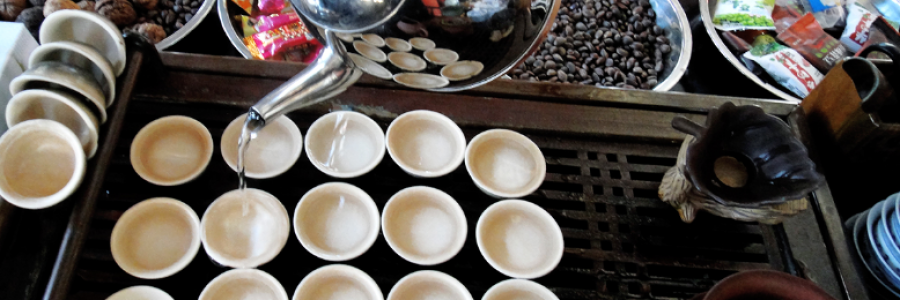Wu Wei Zheng Dao 69
The practitioner of Chan (zen) exposes intuitive consideration of his own flow of psyche, his "I ": feelings, thoughts, emotions, aspirations, etc., as a result of which he discovers that all these phenomenas do not have a separate independent existence and in this sense are unreal.
"I" can not be reduced to any one phenomenon of the psyche, nor to their sum, and therefore it is better to talk about "me" as something existing only conditionally, and even more so, about the "meaning of life of this “me”".
Through the absence of own independent essence of various mental formations: thinking, perception, emotion, Chan Buddhist comprehends "emptiness," "illusion," "lack of own independent essence" of all phenomenons, as well as of all external objects, and so-called "living beings," and his own nature.
There are many books, articles, lectures can be read on Buddhism, but the only book that the abbot of the Wu Wei temple recommends to disciples is Diamond Sutra, instructing to read it aloud every day.
But one day Shifu said: “Everyone should have their own Diamond Sutra. Diamond Sutra, written in their own consciousness, born of own life.”
-This is the Chan, this is Wu Wei, this is Dao, the essence of the teaching transmitted in the Wu Wei temple, - said disciple to the foreigners, after passing on those Shifu’s words, along with the apples from the big tray.
-Oh, thank you for the wisdom.
-And for the fruits!
-What is it all mean?
-Is this the fruits from the altar? There is so many today!
-What do you do with them when we are not here?
Foreign guests of the temple used any chance to talk to the English speaking disciple.
-Sometimes disciples brew kompot for the abbot. This drink in China is considered curative, but its preparation in the Wu Wei temple is not related to the health of Shifu, but with a large number of fruits donated to the temple, to prevent them from spoiling pointlessly, if there are not many people to eat the fruits.
In our kompot we never add sugar, it has to consist of more than three different ingredients, so if only two types of fruit available, then, dried fruits, dates, ginger, or goji berries could be put in the kompot. In traditional Chinese medicine goji, this sour orange berries, are very much appreciated and used as a general strengthening agent, so, we always have them at the temple’s kitchen.
The electric kompot-maker kept in the utility room behind the abbot's pavilion, as well as big buckets of spring water, which novice bringing there every morning. There is electricity in the room, so, it used as a water boiling place.
Fruits loaded into a ceramic kompot-maker, and when the time came, hot fruity water collected from there in a small teapot, which then carried to the abbot's pavilion. The fruits left inside the kompot-maker receive new portion of boiled water for the next portion of the drink.
It can be drunk for a few days in a row, without turning off the kompot-maker, until the fruits completely boiled out, turning into a homogeneous puree substance. Kompot in Chinese called "fruit tea", but there is no tea inside of it, just fruits and water, very humble, simple drink, so it is not served to the guests. The abbot’s pavilion visitors is always offered tea.
Sometimes in the Shifu’s pavilion gathered so many guests, that there was no place at a huge tea table, and all chairs and benches around the room occupied too. But it would never be over-crowded. The new coming guests understand that it is not appropriate to demand the attention of the abbot, seeing that there were already many people in the pavilion, so, they would respectfully bow out, deciding to walk around the temple surroundings, to wait outside for the other visitors to leave, and only then would came into the room.
The presence of Shifu has always influenced soothingly to everybody around him, and the strict and solemn atmosphere of the temple did the job for those who come to talk to the abbot. Even simple illiterate villagers who loved loud gatherings with hustle and bustle, felt sublime and naturally conducted calm, extremely respectfully, restrained and ceremonial.
